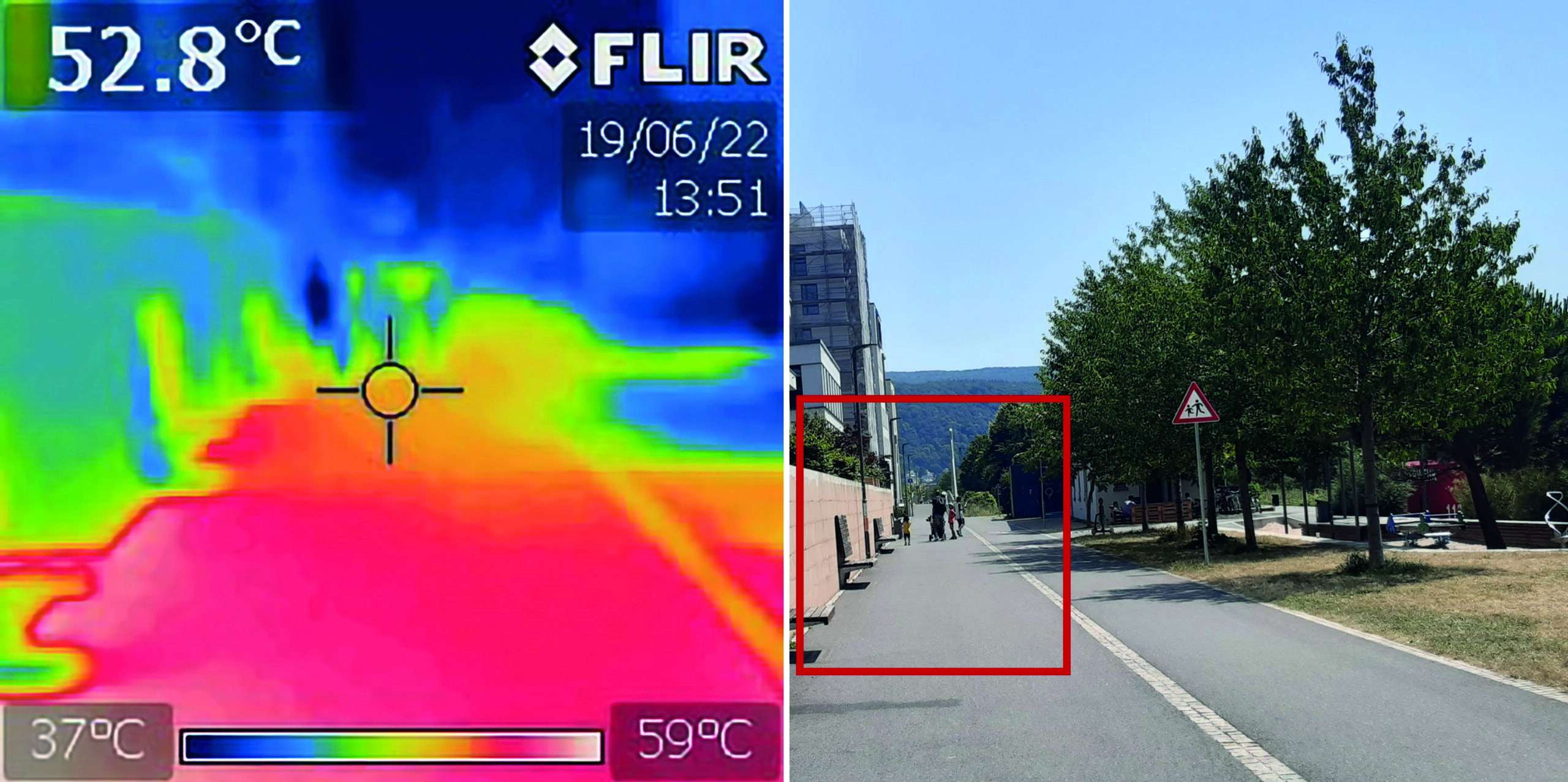Category: Transdisciplinarity
-

“How to assess the needs of vulnerable population groups towards heat-sensitive routing?”
The research team of the transdisciplinary project HEAL (Heat Adaptation for Vulnerable Population Groups), focusing on providing heat adaptation measures for vulnerable groups in Heidelberg, has published a research paper titled “How to assess the needs of vulnerable population groups towards heat-sensitive routing? An evidence-based and practical approach to reducing urban heat stress”. The paper…
-
Understanding spatiotemporal trip purposes of urban micro-mobility from the lens of dockless e-scooter sharing
Over the last two years, we have witnessed the ever-fast growth of micro-mobility services (e.g., e-bikes and e-scooters), which brings both challenges and innovations to the traditional urban transportation systems. For example, they provide an opportunity to better address the “last mile” problem due to their convenience, flexibility and zero emission. As such, it is…
-
GIScience/HeiGIT und DRK gemeinsam im CHAtroom – Im Podcast werden die Zusammenarbeit und das Sketch Map Tool vorgestellt
Anne Tritschler vom Centre for Humanitarian Action (CHA) spricht im Podcast CHAtroom mit Dr. Carolin Klonner (GIScience) und Dr. Natascha Bing (DRK) über den Einsatz von Geoinformationen in der humanitären Hilfe und welche Rolle dabei Karten, vor allem partizipatives Mapping, spielen. Lokales Wissen ist eine wichtige Informationsquelle, die in der Katastrophenvorsorge immer mehr zum Einsatz…
-
Waterproofing Data Project: Sharing experiences and accessing impacts
After three interesting years, the Waterproofing Data Project (WPD) comes to an end. Starting with a workshop in Brazil and several field trips, Corona times started and we had to rethink and reorganize our plans for the second half of the project. Our final workshop day in Heidelberg was also planned to be in person…
-
WENN ES IN DER STADT ZU HEISS WIRD
Aktuelle Meldung der Universität Heidelberg zum Projekt HEAL: https://www.uni-heidelberg.de/de/newsroom/wenn-es-in-der-stadt-zu-heiss-wird BADEN-WÜRTTEMBERG STIFTUNG FÖRDERT HEIDELBERGER PROJEKT ZU ROUTINGDIENST MIT HITZEVERMEIDENDEN WEGSTRECKEN Wo in der Stadt Heidelberg ist es besonders heiß und wie wirken sich lokale Hitzebelastungen auf gefährdete Personengruppen aus? Mit dieser Frage befasst sich ein Forschungsprojekt, durchgeführt von der Abteilung Geoinformatik und dem TdLab Geographie am Geographischen…
-
Impulse aus der Corona-Krise
“International erfolgreiche Wissenschaft ist bislang untrennbar verknüpft mit weltweiter Reiseaktivität. Der vor allem durch Flugreisen verursachte Treibhausgasausstoß steht im Widerspruch zum Klimaschutz. Die Corona-Krise wirkte disruptiv auf etablierte Praktiken des Austauschs und zeigte plötzlich Wege auf, die zuvor kaum denkbar waren. Doch was passiert nach der Pandemie? Wie kann es gelingen, auf den Erfahrungen aufbauend,…
-
TdLab Geography at the ITD21 conference
From 13 to 17 September 2021, the “International Transdisciplinarity Conference ITD21” took place in online format. The TdLab Geography participated with the contribution “Towards a co-design of adaptation measures to heat events in cities: examples from Heidelberg, Germany”. In a self-produced video, Nicole Aeschbach and Kathrin Foshag presented two studies on climate change adaptation from…
-
New paper published about the OSM Sketch Map Tool
The Sketch Map Tool supports participatory mapping approaches and risk communication. An new paper presents the different functionalities of the tool. OSM data quality can be evaluated regarding the fitness for the sketch-map-approach. Based on the great idea of Field Papers, paper maps can be printed out for the use in the field, and afterwards,…
-
Klima-Netzwerk PRIO1: Herbstcamp
Neue Konzepte zur Bewältigung der Klimakrise und zur Gestaltung der Zukunft standen im Mittelpunkt des “Digitalen Herbstcamp” von PRIO1, einem neu gegründeten Klima-Netzwerk. Die Teilnehmer*innen – zwischen 16 und 25 Jahre alt – entwickelten vom 13. bis 15. November 2020 im Rahmen von parallel laufenden Workshops Ideen und konkrete Aktivitäten zu den Handlungsfeldern “Wohlstand und…
-
Wo mehr Grün wirklich helfen könnte: Interview mit Kathrin Foshag
Welchen Einfluss haben steigende Temperaturen und die zunehmende Zahl heißer Tage auf Städte, insbesondere auf die Hitzebelastung öffentlicher Plätze? Mit dieser Frage beschäftigte sich das Dissertationsprojekt von Dr. Kathrin Foshag an der Heidelberg School of Education. Nachdem die Ergebnisse kürzlich unter dem Titel “Viability of public spaces in cities under increasing heat: A transdisciplinary approach”…
-
No place for climate change
Transdisciplinary study on climate change adaptation of urban squares Climate change is not only taking place on distant continents or far into the future, but here and now. In Germany, too, the temperature is rising – and even faster than the global average – and the number of hot days is increasing. Especially in cities,…
-
Zusammen Wirken / Working Together: TdLab Geography
In der aktuellen Ausgabe des Forschungsmagazins „Ruperto Carola“ haben Dr. Nicole Aeschbach und Dr. Kathrin Foshag einen Artikel zur Arbeit des TdLab Geographie am Geographischen Institut der Universität Heidelberg veröffentlicht. Unter dem Titel „Zusammen Wirken. Die große Transformation“ zeigen die Leiterin und die Postdoktorandin des TdLab auf, wie transdisziplinäre (td) Ansätze einen Beitrag zur wissenschaftlichen…


